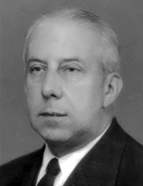

Two other interventions took on a different flavour. One was social in nature, concerning the professional card for office workers. The other, of a political nature, concerned constitutional reform. In the first case, the issue was the security of this card, which Caetano Beirão harshly criticised because, as it had been presented, it ‘created distance and unease between employer and employee, contrary to the corporate spirit’ whose aim was to ‘coordinate production and protect those who produce’ ( Idem , 1.4.1949, p. 686 and p. 685). In both respects, the regulation of 14 February 1950, which was under discussion, was notable for containing ‘certain incongruous provisions’ ( Idem , p. 686). It would , therefore , have to be reformulated.
In the second case, which involved constitutional reform, Caetano Beirão ’ s intervention was centred on two aspects: its necessity and its content, which, after all, stemmed from a common basis, the only one that would give them meaning – adaptation to the real country, removing theoretical principles that were alien to it because they ignored the national context. By ignoring them, the institutions became politically unsuitable and paved the way for political disaster. These had been the consequences of the constitutions of 1822 and 1838 and , to a certain extent , of the Charter of 1826. And this would also be the result of the constitutional reform underway if it failed to take into account these two assumptions. In Caetano Beirão ’ s view, the permanence of societies, regardless of what they were, depended on the unity of the power that presided over their destiny. As such, this requirement also applied to political societies. These would be all the more cohesive if the political power was also cohesive.
In this case, the fact that it had been maintained for decades under the unchanged and superior presence of a single president, General Óscar Carmona, guaranteed the desired stability. Moreover, he had not come to power by election and had not remained in power by an actual election. In addition, History had shown that the unity of supreme power had been a factor in national unity for 800 years of hereditary monarchy. In this sense, Caetano Beirão was not formally advocating a change of regime , and he said so verbatim. ‘It is a fact,’ he said, that ‘the issue of the regime has not been raised’ and that the monarchists do not wish to raise it ‘can be inferred from their attitude of collaboration with Salazar ’ s government, from the attitude with which they have contributed to the successive reappointments of President Carmona and, above all, can be inferred from the statements made publicly by His Majesty Duarte ’ s lieutenant’ ( Idem , 4.4.1931, p. 730).
This work is financed by national funds through FCT - Foundation for Science and Technology, I.P, in the scope of the projects UIDB/04311/2020 and UIDP/04311/2020.
